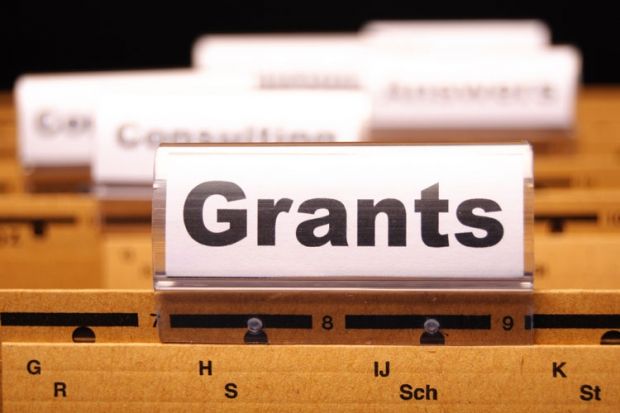Leverhulme Trust
Research project grants
Sciences
- Award winner: Ross Hatton
- Institution: University of Warwick
- Value: £166,140
Engineering hybrid interface materials for thin film photovoltaics
- Award winner: Eros Mariani
- Institution: University of Exeter
- Value: £258,209
Quantum drum
- Award winner: Simon McQueen-Mason
- Institution: University of York
- Value: £249,173
Mannitol metabolism in marine microalgae: physiology and applications
Royal Society/Academy of Medical Sciences/British Academy
Newton Advanced Fellowships
The scheme gives researchers a chance to develop their research groups through collaboration and reciprocal visits
- Award winner: Roberto Serra
- Institution: Universidade Federal do ABC (host: University of York)
- Value: £67,100
Quantum thermodynamics in many-body systems
National Institute for Health Research
Efficacy and Mechanism Evaluation programme
- Award winner: Tom Solomon
- Institution: University of Liverpool
- Value: £1,163,548
COHESIVE – corticosteroids in herpes simplex virus encephalitis
Biotechnology and Biological Sciences Research Council
- Award winner: Jason Wolf
- Institution: University of Bath
- Value: £379,287
Bilateral BBSRC-FAPESP: A genome-wide view of the evolutionary processes shaping genetic variation in natural populations
Economic and Social Research Council
Research grants
- Award winner: Yvonne Rydin
- Institution: University College London
- Value: £341,081
Evidence, publics and decision-making for major wind infrastructure
- Award winner: Tim Schwanen
- Institution: University of Oxford
- Value: £265,927
DEPICT: Designing and policy implementation for encouraging cycling and walking trips
- Award winner: Andrea Hollomotz
- Institution: University of Leeds
- Value: £198,380
Realist evaluation of adapted sex offender treatment programmes for men with intellectual disability
In detail
Award winner: Marianne Hester
Institution: University of Bristol
Value: £780,193
Justice, inequality and gender-based violence (GBV)
The aim of this project is to address how “justice” – in its wider sense – is understood, sought and experienced by victims/survivors of gender-based violence (which includes sexual and domestic violence, forced marriage and “honour-based” violence) as well as by key practitioners. Incidents of such violence consistently drop out of the justice system. To explore this “justice gap”, the team will ask questions including: how do victims/survivors and others experience and perceive “justice”, and how does inequality affect access to support pathways and trajectories through the formal and informal justice systems? The researchers will also ask how are notions of empowerment linked to notions of justice and access to justice, how do practitioners themselves perceive notions of “justice”, whether enacted through formal or informal routes, and what would a truly victim-focused justice agenda for gender-based violence look like?
请先注册再继续
为何要注册?
- 注册是免费的,而且十分便捷
- 注册成功后,您每月可免费阅读3篇文章
- 订阅我们的邮件
已经注册或者是已订阅?
